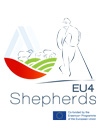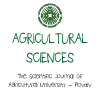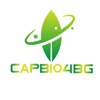Principles of field experimental processing
|
Course title: |
Principles of Field Experimental Processing |
|
|
Course code: |
AFPFP |
|
|
ECTS: |
5 |
|
|
In-class hours |
Lectures: |
30 |
|
Laboratory work/Tutorials: |
15 |
|
|
Self-preparation hours |
Practical training: |
- |
|
Other: |
65 |
|
|
Total hours: |
110 |
|
|
Language: |
English |
|
|
Study cycle: |
BSc, MSc, PhD |
|
|
Semester: |
Winter & Summer |
|
|
Faculty: |
Faculty of Agronomy |
|
|
Name of the lecturer(s): |
Assoc.Prof. Krasimira Uzunova, PhD |
|
|
Mode of delivery: |
Face-to-face, distance learning, or a combination of both |
|
|
Prerequisites: |
No |
|
|
Learning outcomes of the course unit: |
The main purpose of this course is to provide BSc students, graduate MSc and PhD students, and young researchers who are engaged in different areas of agronomy research with sufficient and efficient practical techniques for dealing with data collected from their experiments. The lectures will give the students in details how to run their experiments scientifically, collect data, analyze and draw valid conclusions, and make sound decisions and meaningful analysis. With the current emphasis on interdisciplinary research, there is an urgent need for a course of this type oriented towards practical applications in agriculture, plant and crop sciences. The lectures and tutorials are available in such a way that it is easily understandable by nonmathematicians. Several topics such as field layout of experiments, sampling for plant traits, and plot size and shape are included. The experimental design has to be formulated following the basic principles of experimental design: replication, randomization, and local control. Sufficient importance has been given to preliminary topics such as data condensation, tabulation, graphical representations and test of significance. When dealing with examples, the course has presented all the steps in solving to ensure that students will have no difficulty in following the procedures used in arriving at the solutions to the problems in agricultural areas. |
|
|
Course contents: |
I. LECTURES – 30 hours (15 x 2 hours) 1. The nature of Data – raw data, classification of data. 2. Measures of central tendency – mean, median, mode. 3. Measures of dispersions – variables, most common measures of dispersion. 4. Probability – experiments, basic concepts of probability, properties of normal distribution. 5. Set theory – sample spaces, expected value. 6. Population, sample, and inference – sample size and the sampling distribution of mean, some points and standard error. 7. Experimental design – experimental unit, 8. Accuracy, precision. 9. Study of variability among plots – treatment, experimental error 10. Principles of experimental design – replication, randomization. 11. Local control, analysis of data. 12. Completely randomized design – description of the design, F-ratio and its significance. 13. Using the F table – assumptions, least significant difference (LSD). 14. Randomized complete block design – two-way classification, the specifics of randomized complete block design. 15. Split plot design – reasons for adopting split-plot design, procedure of layout of split plot design.
II. LABORATORY PRACTICAL WORK – 15 hours 1. Nature of data and measures of central tendency - exercises. 2. Measures of dispersion and normal distribution - exercises. 3. Probability and set theory – expected value, exercise. 4. Sample size and sampling distribution of mean, standard error and exercises. 5. Experimental unit, treatment, experimental error – work of experimental project. 6. Analysis of variance – find the F ratio value, degree of freedom, summary of the ANOVA technique. 7. Principles of experimental design – randomization and local control, work of research project. 8. Factorial experiments – single- factor experiment. |
|
|
Recommended or required reading: |
1. Handbook of statistics for teaching and research in plant and crop science, 2006, Food production press, the Haworth Reference press, New York, London, Oxford, Palaniswamy Usha and Palaniswamy Kodiveri 2. Practical statistics for field biology, 1992, John Wiley & Sons Ltd, Chichester, UK, Fowler J. and Cohen L. 3. An introduction to the principles of crop experimentation, 1991, Third edition, Published BASF, London, Clewer A. and Scarisbrick D. |
|
|
Planned learning activities and teaching methods: |
Lectures, tutorial and brainstorming |
|
|
Assessment methods and criteria: |
Exercises evaluation, Assessment of working project |
|
 - Events on the occasion of the 80th anniversary of AU
- Events on the occasion of the 80th anniversary of AU











